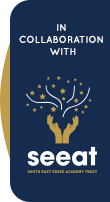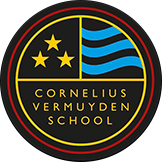Spanish
Intent

Career Opportunities in Spanish
The study of Spanish allows you to develop skills that can lead to many different career choices. Some examples of careers you could pursue include community development, linguistics, airport work, language engineering, customer services, bilingual classroom assisting, cruise ship work, interpreting, intelligence/security work, the diplomatic service, tourist information work, international law, hotel management, tour operating, the European Commission, aid work, exporting/importing, immigration, travel agency work, and teaching English abroad, to name but a few. The opportunities are endless....
Spanish (or any other language, for that matter) is accepted by all employers and universities because the wide range of skills and knowledge provided allows students to develop as individuals. Most universities offer courses in these subjects, giving students the opportunity for further development.
Year 9 Curriculum Overview
Spring Term
| What are we learning? | What knowledge, understanding and skills will we gain? | What will excellence look like? | How will we recognise progress? |
| In Shape | Students will learn how to talk about diet and healthy eating and a healthy lifestyle. They will be able to outline their daily routine and develop conversations about keeping fit. Students will be able to talk about ailments and getting fit. Students will practise negation, reflexive verbs and creating interesting sentences. | Students will be able to understand written texts and audio passages about being in shape and be able to answer comprehension questions. Students will be able to use their own knowledge and those of the texts and audios to create their own texts to discuss their fitness and what they like/dislike and give justified opinions. Students will be able to partake in detailed discussion regarding being in shape, giving opinions and agreeing/disagreeing with the opinions of others. |
Formative assessment: Students will complete recall quizzes at the beginning of each lesson to help recall and embed prior knowledge. Students will be assessed on their knowledge and understanding through questioning in class, to which teacher feedback will be given. Summative assessment: Students will complete a reading and listening assessment on the unit knowledge. Students will complete a written task about their daily routine. |
| Young People in Action | Students will learn about children’s lives and rights and how they might travel to school. Students will be able to talk about real world issues relating to but not exclusively the environment and raising money for charity. Students will practise the third person singular form and first person plural form of verbs, the comparative and dictionary skills | Students will be able to understand written texts and audio passages about young people in action and be able to answer comprehension questions. Students will be able to use their own knowledge and those of the texts and audios to create their own texts to discuss young people in action and what they like/dislike and give justified opinions. Students will be able to partake in detailed discussion regarding young people in action, giving opinions and agreeing/disagreeing with the opinions of others. |
Formative assessment: Students will complete recall quizzes at the beginning of each lesson to help recall and embed prior knowledge. Students will be assessed on their knowledge and understanding through questioning in class, to which teacher feedback will be given. Summative assessment: Students will complete a reading and listening assessment on the unit knowledge. Students will complete a spoken presentation about what they do help their school protect the environment and their future plans. |
Summer Term
| What are we learning? | What knowledge, understanding and skills will we gain? | What will excellence look like? | How will we recognise progress? |
| An adventure in Madrid | Students will revisit prior knowledge of holidays to talk about a holiday in Madrid and all it entails. They will meet and greet people, talk about a treasure hunt, discuss souvenirs and say what they will do. Students will learn skills in making themselves understood when navigating a foreign language. They will learn how to access more challenging and authentic texts about Madrid. Students will practice using the comparative, superlative and the near future tense. Students will use cognates and context to decipher texts and audio. | Students will be able to understand written texts and audio passages about Madrid and be able to answer comprehension questions. Students will be able to use their own knowledge and those of the texts and audios to create their own texts to write and speak about Madrid. Students will be able to partake in role-play conversations, agreeing/disagreeing with the opinions of others and making comparisons. |
Formative assessment: Students will complete recall quizzes at the beginning of each lesson to help recall and embed prior knowledge. Students will be assessed on their knowledge and understanding through questioning in class, to which teacher feedback will be given.
Summative assessment: Students will complete a reading and listening assessment on the unit knowledge. Students will complete a written translation task on the topic of a treasure hunt. This will be teacher-assessed and feedback will be given. |
| Film project: Ferdinand |
Students will expand on their prior knowledge of Spanish customs and traditions, with a focus on the running of the bulls. They will be able to read film reviews and decide whether they would enjoy/dislike the film based on these recommendations. They will describe a film poster and trailer using previous knowledge of public holidays. Students will learn the about the characters of the film and be able to give a summary of them. | Students will be able to understand video excerpts and audio passages about the running of the bulls and be able to answer comprehension questions. Students will be able to use their own knowledge and those of the video and audio to create their own ideas to give a critique of the film. Students will be able to describe the characters. |
Formative assessment: Students will complete recall quizzes at the beginning of each lesson to help recall and embed prior knowledge. Students will be assessed on their knowledge and understanding through questioning in class, to which teacher feedback will be given.
Summative assessment: Students will complete an end of year assessment based on everything they have covered this year. It will include reading, listening, writing and speaking. |




